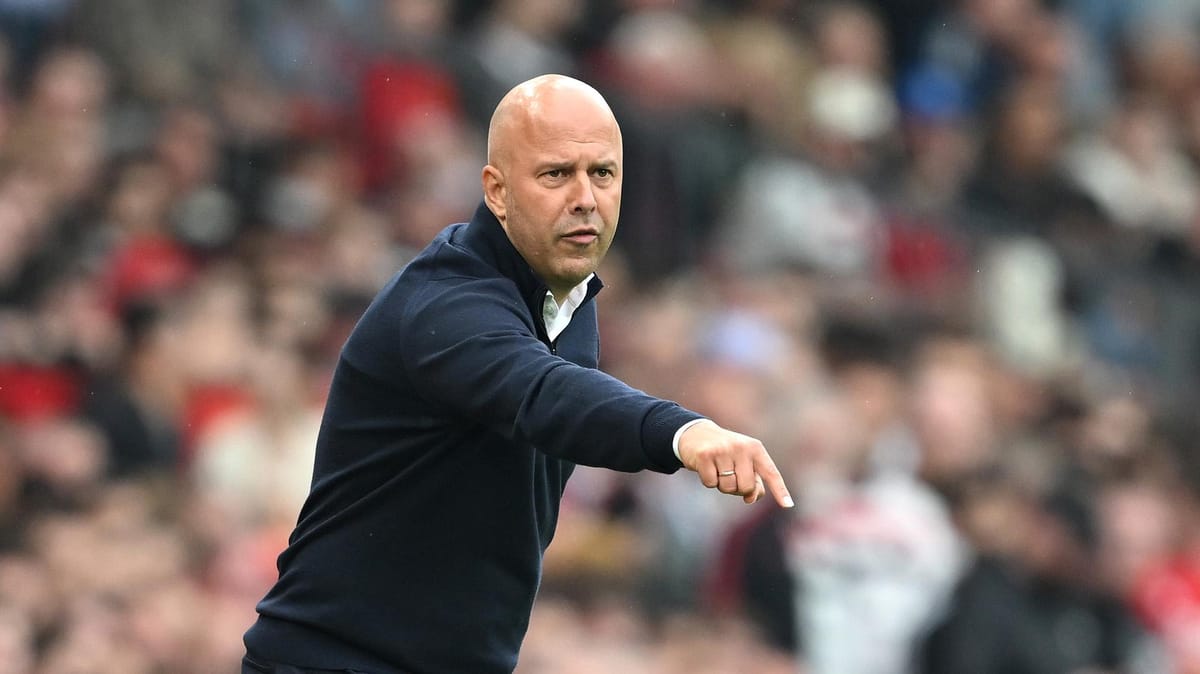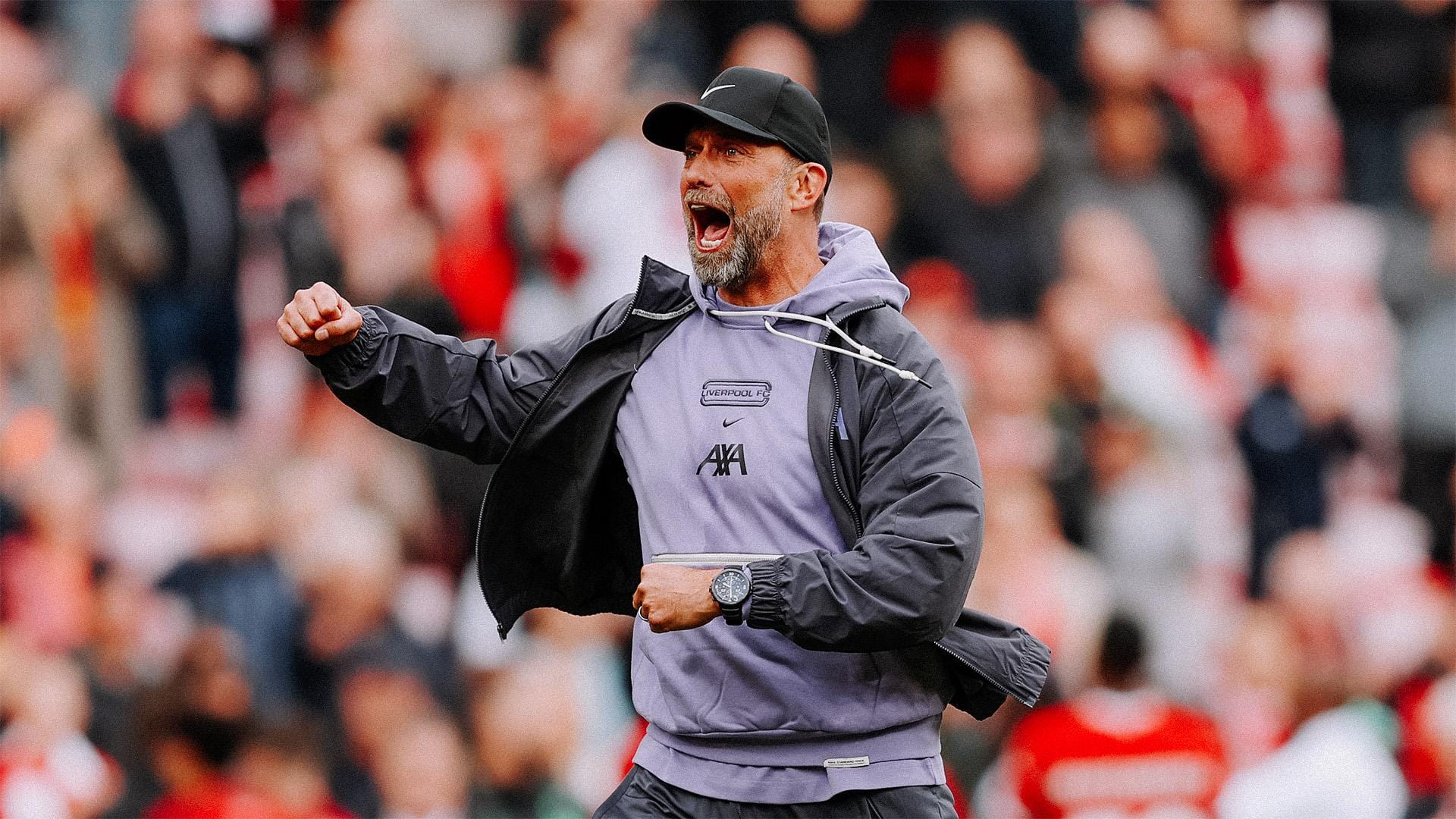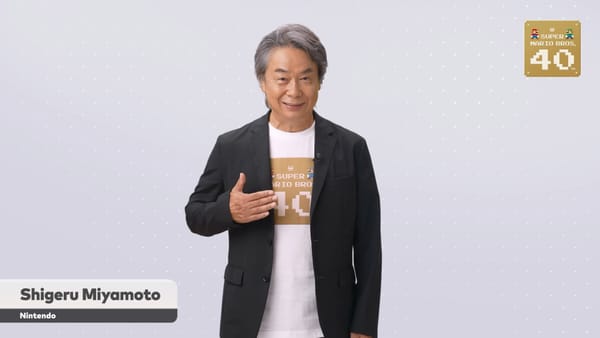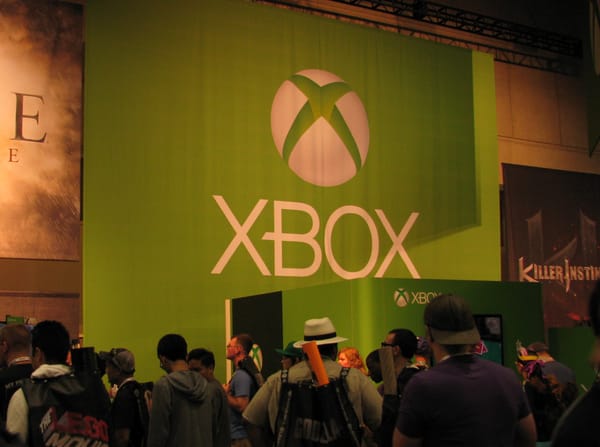Slot steps out of the shadow of Klopp
Arne Slot is quickly winning over Liverpool fans not just with results, but with his attitude.

When the teams walked out for Liverpool's first game of the season, it finally hit me: Jürgen Klopp was no longer our manager.
Despite the long goodbye, despite the hours of social media #content, despite the many stories about how this was now Arne Slot’s Liverpool, it took until that moment for it to sink in that Klopp was gone.
What made it feel especially odd was that not a lot else seemed to have changed. A muted transfer window meant that Slot’s first starting lineup was one Klopp could have named. The performance in that first match felt a bit like it was Klopp’s Liverpool, just slower. The second match felt a bit like, oh, okay, so we pass more now? Cool.
It wasn’t until the third match for me to really feel that this is Arne Slot’s Liverpool.
This all might sound like a knee-jerk reaction given that I’m writing it in the wake of Liverpool easily swatting aside Manchester United, our biggest rivals, 3-0. But it was the manner of the performance that truly impressed: it was more distinct in terms of team shape, in terms of player movement and coordination. The parts of the Klopp era that were retained — high pressure, springing traps, racing forward to counter — didn’t feel like holdovers or muscle memory; it felt intentionally integrated into a new plan. And all that happened against the toughest opponent of the season in their own stadium.
It’s easy to contrast the two teams on Sunday given their two managers. Both Erik Ten Hag and Arne Slot came from the Netherlands with impeccable records and are now leading the two biggest clubs in the Premier League.
And yet, it is… no, hang on. It’s not remarkable. It’s actually beyond remarkable and into the realms of high comedy that Ten Hag is in Year 3 of his tenure at United and his teams don’t play any recognizable brand of football, while Slot is in Matchweek 3 and his team has already laid on a signature showing.
Much of the post-match discussion was about Casemiro’s wretched performance and United’s ongoing weaknesses in the middle of the pitch. What seems to be forgotten is that, just a few short weeks ago, Liverpool were being criticized for their now-standard all or nothing approach to signing a “number six” midfielder. When a move for Martin Zubimendi fell through, Liverpool declined to turn to a backup plan, and proceeded on without the “number six” Slot seemed to crave. We’re supposed to be the ones lacking in midfield — and yet that’s the area in which we dominated the game.
Our failed summer midfield saga is oddly similar to what Ten Hag experienced two years ago, when he tried to sign Frenkie de Jong from Barcelona. Then, as now, the player refused to move.
Without De Jong, and following two defeats in his first two Premier League games, Ten Hag abandoned his original plan and switched to a more reactive, counter-attacking style. He has yet to re-implement that original plan; two years on, pundits regularly bemoan that it remains unclear what exactly he’s trying to do and how he wants United to play. There is no distinct style to the way Ten Hag’s United play, unlike Guardiola’s Manchester City, Arteta’s Arsenal or now, Slot’s Liverpool.
Yes, it’s been said (by, uh, Ten Hag) that Slot inherited a better team than Ten Hag. That’s true. But the team that faced Liverpool was very much Ten Hag’s: of the starting eleven, he signed six (four of them played for him before at Ajax) and gave full debuts to two.
And sure, Slot took over an existing, successful squad. But he’s also clearly trying to play a new brand of football with those players. He’s working with a squad signed with a different style in mind, and yet they don’t feel like round pegs in square holes; they’ve, er, slotted right in.
It was quickly forgotten that Slot didn’t get the number six he wanted because of Slot himself: he simply got on with it and made it work. Slot played Ryan Gravenberch as the number six, a position he’s not familiar with. The match against United was supposed to represent a stiff test for him. He ended up being one of the best players on the pitch.
I bring up the Ten Hag comparison not to laugh at United — well, okay, maybe a little — but to highlight the job done by his compatriot, Slot. He didn’t panic and change his plans like Ten Hag did so early in his United career. The general air of calmness and confidence from Slot in the wake of the transfer window has set a positive tone for the whole club.
Sure, it’s easy to be positive after what even Slot admits was a perfect day. There will be darker days ahead. After the international break, we face a run of 7 matches in 21 days; if injuries start to pile up, it’s more than possible that Liverpool go off the rails. But it’s hard not to be optimistic that we’ve got the right man to weather those storms given the way Slot has so smoothly managed to take over from a deeply beloved manager.

Last week, after his first victory at home as Liverpool manager, Slot walked towards the fans. This is where we’re used to seeing Klopp’s signature celebration: energetically punching the air as the crowd cheers, their cries in unison with his fist pumps.
As Slot approached the fans, I can’t have been the only one wondering what he’d do. He can’t copy Klopp’s fist pumps, of course; that’d be weird. And making up a different celebration would also have felt forced, maybe even a little desperate.
He didn’t do that. Slot gave a little wave and walked on.
It’s understandable for fans to feel a little empty at that; I certainly felt a pang of “wait, that’s it?” But it was also understandable from Slot. If anything, I was impressed that he didn’t feel the need to play to the crowd. He’s not Klopp and he’s not trying to be. He is who he is, and he seems perfectly comfortable and confident in his own approach.
Slot has bought himself a lot of goodwill at Liverpool, and that’s not just about beating Manchester United. It’s his approach, his football, his overall demeanor that’s really impressed. He’s calm, he’s clear, and he’s already stamped his authority on a club that was defined for so long by Jürgen Klopp. This is Arne Slot’s Liverpool now, and I can’t wait to see where we go from here.





